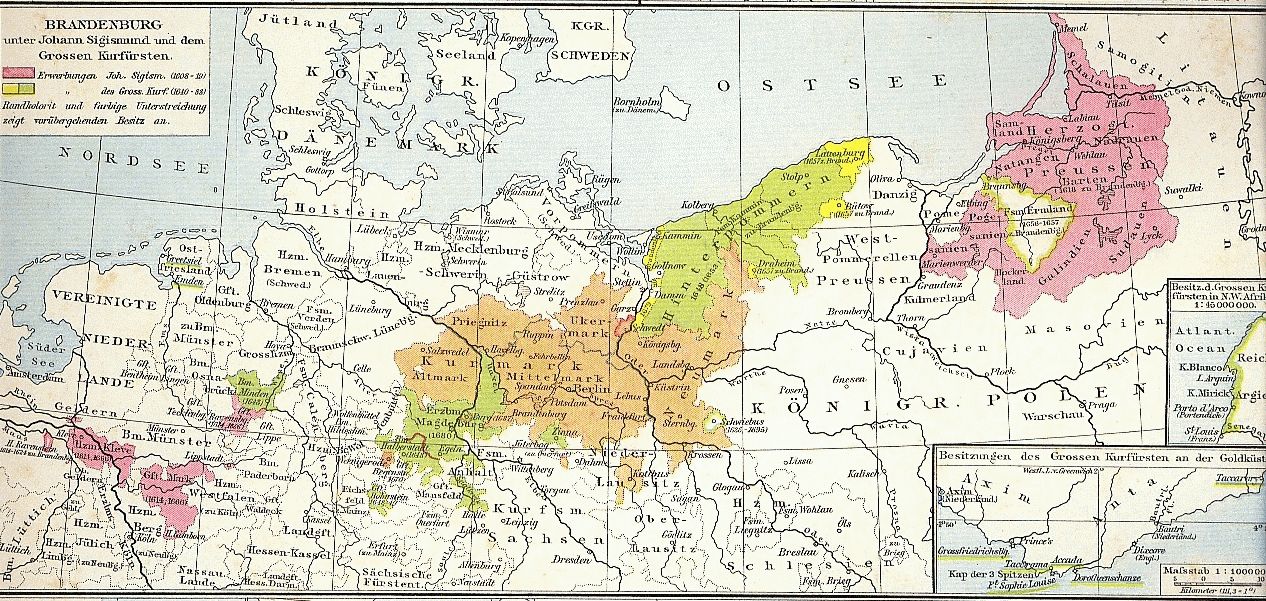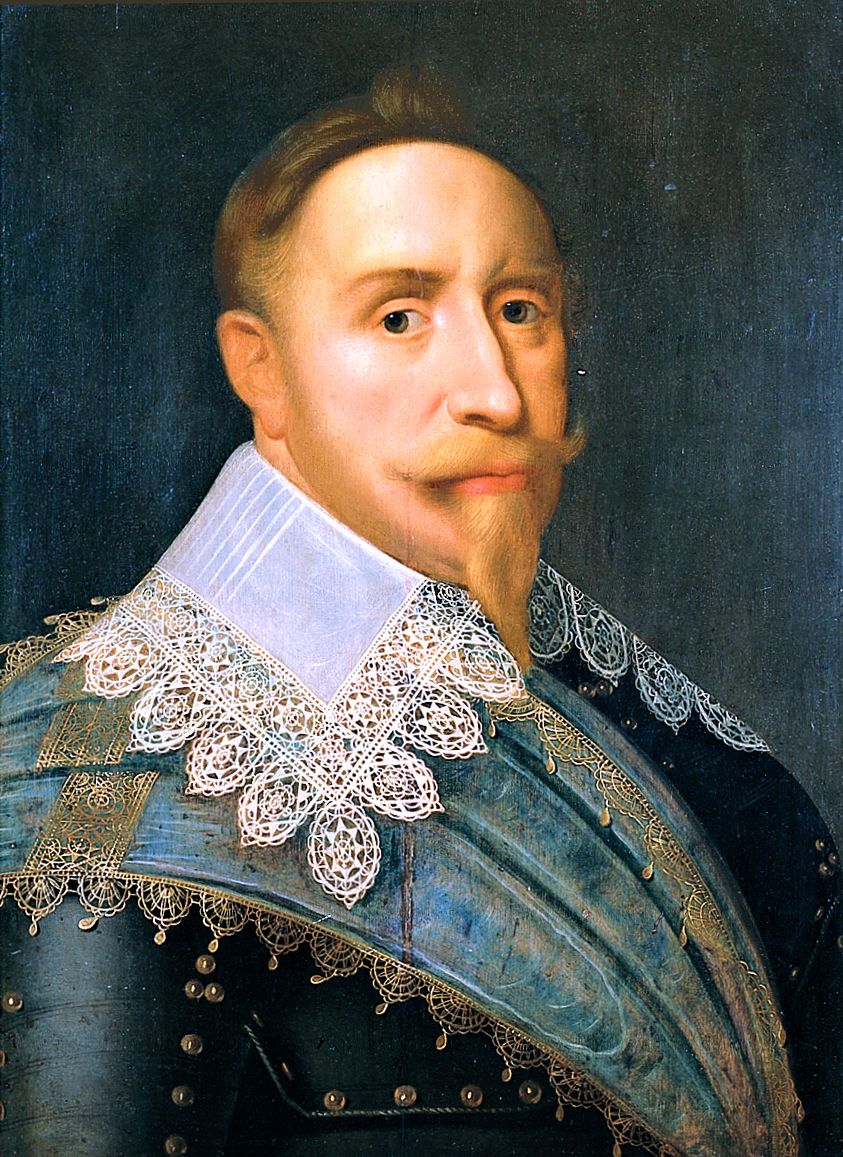|
Viereck
Viereck is a Municipalities of Germany, municipality in the Vorpommern-Greifswald district, in Mecklenburg-Vorpommern, Germany. History Viereck was founded in 1748 in the Prussia, Prussian Province of Pomerania (1653–1815), Province of Pomerania in the course of the repopulation policy under King Frederick II of Prussia, Frederick II, the Great, of Prussia. The area had been part of Swedish Pomerania from 1648 until 1720, when it was transferred to Prussia as a result of the Treaties of Stockholm (Great Northern War), Treaty of Stockholm. The then competent Prussian state minister in charge of internal colonisation, , became namesake to the place, when it was renamed in his honour in 1751.SeCantow in Vorpommern, since 1748 Viereck remained a part of the Province of Pomerania until 1945. From 1945 to 1952, it was part of the State of Mecklenburg-Vorpommern, from 1952 to 1990 of the Bezirk Neubrandenburg of East Germany and since 1990 again of Mecklenburg-Vorpommern. References [...More Info...] [...Related Items...] OR: [Wikipedia] [Google] [Baidu] |
East Germany
East Germany, officially known as the German Democratic Republic (GDR), was a country in Central Europe from Foundation of East Germany, its formation on 7 October 1949 until German reunification, its reunification with West Germany (FRG) on 3 October 1990. Until 1989, it was generally viewed as a communist state and described itself as a Socialist state, socialist "workers' and peasants' state". The Economy of East Germany, economy of the country was Central planning, centrally planned and government-owned corporation, state-owned. Although the GDR had to pay substantial war reparations to the Soviets, its economy became the most successful in the Eastern Bloc. Before its establishment, the country's territory was administered and occupied by Soviet forces following the Berlin Declaration (1945), Berlin Declaration abolishing German sovereignty in World War II. The Potsdam Agreement established the Soviet occupation zone in Germany, Soviet-occupied zone, bounded on the east b ... [...More Info...] [...Related Items...] OR: [Wikipedia] [Google] [Baidu] |
Vorpommern-Greifswald
Vorpommern-Greifswald is a district in the east of Mecklenburg-Vorpommern, Germany. It is bounded by (from the west and clockwise) the districts of Mecklenburgische Seenplatte and Vorpommern-Rügen, the Baltic Sea, Poland (West Pomeranian Voivodeship West Pomeranian Voivodeship is a Voivodeships of Poland, voivodeship (province) in northwestern Poland. Its capital and largest city is Szczecin. Its area equals , and in 2021, it was inhabited by 1,682,003 people. It was established on 1 Janua ...) and the state of Brandenburg. The district seat is the University and Hanseatic City of Greifswald. A lake called Berliner See is found in the district. History Vorpommern-Greifswald District was established by merging the former districts of Ostvorpommern and Uecker-Randow; along with the subdivisions of Jarmen-Tutow and Peenetal/Loitz (from the former district of Demmin), and the former district-free town Greifswald, as part of the local government reform of September ... [...More Info...] [...Related Items...] OR: [Wikipedia] [Google] [Baidu] |
Municipalities Of Germany
MunicipalitiesCountry Compendium. A companion to the English Style Guide European Commission, May 2021, pages 58–59. (, ; singular ) are the lowest level of official territorial division in . This can be the second, third, fourth or fifth level of territorial division, depending on the status of the municipality and the '''' (federal state) it is part of. The city-states Berlin, Brem ... [...More Info...] [...Related Items...] OR: [Wikipedia] [Google] [Baidu] |
Mecklenburg-Vorpommern
Mecklenburg-Vorpommern (MV; ; ), also known by its Anglicisation, anglicized name Mecklenburg–Western Pomerania, is a Federated state, state in the north-east of Germany. Of the country's States of Germany, sixteen states, Mecklenburg-Vorpommern Demographics of Germany#States, ranks 14th in population; it covers an area of , making it the sixth largest German state in area; and it is 16th in population density. Schwerin is the state capital and Rostock is the largest city. Other major List of cities in Mecklenburg-Vorpommern, cities include Neubrandenburg, Stralsund, Greifswald, Wismar, and Güstrow. It was named after the two regions of Mecklenburg and Western Pomerania (German: Vorpommern). The state was established in 1945 after World War II through the merger of the historic regions of Mecklenburg and Prussian Western Pomerania by the Soviet Military Administration in Germany, Soviet military administration in Allied-occupied Germany. It became part of the German Democrat ... [...More Info...] [...Related Items...] OR: [Wikipedia] [Google] [Baidu] |
Germany
Germany, officially the Federal Republic of Germany, is a country in Central Europe. It lies between the Baltic Sea and the North Sea to the north and the Alps to the south. Its sixteen States of Germany, constituent states have a total population of over 84 million in an area of , making it the most populous member state of the European Union. It borders Denmark to the north, Poland and the Czech Republic to the east, Austria and Switzerland to the south, and France, Luxembourg, Belgium, and the Netherlands to the west. The Capital of Germany, nation's capital and List of cities in Germany by population, most populous city is Berlin and its main financial centre is Frankfurt; the largest urban area is the Ruhr. Settlement in the territory of modern Germany began in the Lower Paleolithic, with various tribes inhabiting it from the Neolithic onward, chiefly the Celts. Various Germanic peoples, Germanic tribes have inhabited the northern parts of modern Germany since classical ... [...More Info...] [...Related Items...] OR: [Wikipedia] [Google] [Baidu] |
Prussia
Prussia (; ; Old Prussian: ''Prūsija'') was a Germans, German state centred on the North European Plain that originated from the 1525 secularization of the Prussia (region), Prussian part of the State of the Teutonic Order. For centuries, the House of Hohenzollern ruled Prussia, expanding its size with the Prussian Army. Prussia, with its capital at Königsberg and then, when it became the Kingdom of Prussia in 1701, History of Berlin, Berlin, decisively shaped the history of Germany. Prussia formed the German Empire when it united the German states in 1871. It was ''de facto'' dissolved by 1932 Prussian coup d'état, an emergency decree transferring powers of the Prussian government to German Chancellor Franz von Papen in 1932 and ''de jure'' by Abolition of Prussia, an Allied decree in 1947. The name ''Prussia'' derives from the Old Prussians who were conquered by the Teutonic Knightsan organized Catholic medieval Military order (religious society), military order of Pru ... [...More Info...] [...Related Items...] OR: [Wikipedia] [Google] [Baidu] |
Province Of Pomerania (1653–1815)
The Province of Pomerania was a province of Brandenburg-Prussia, the later Kingdom of Prussia. After the Thirty Years' War, the province consisted of Farther Pomerania. Subsequently, the Lauenburg and Bütow Land, Draheim, and Swedish Pomerania south of the Peene river were joined into the province. The province was succeeded by the Province of Pomerania (1815–1945), Province of Pomerania set up in 1815. The name ''Pomerania'' comes from Slavic languages, Slavic ''po more'' meaning ''the land at a sea''. Farther Pomerania Farther Pomerania was made a Provinces of Prussia, province of Prussia (''Brandenburg-Prussia'') after the Peace of Westphalia ended the Thirty Years' War in 1648. During the war, the noble House of Pomerania (''Griffins''), ruling Pomerania since the 1120s as Pomeranian duchies and dukes, Dukes of Pomerania, became extinct in the male line with the death of Bogislaw XIV, Duke of Pomerania, Bogislaw XIV in 1637. Throughout the existence of the Griffin du ... [...More Info...] [...Related Items...] OR: [Wikipedia] [Google] [Baidu] |
Frederick II Of Prussia
Frederick II (; 24 January 171217 August 1786) was the monarch of Prussia from 1740 until his death in 1786. He was the last Hohenzollern monarch titled ''King in Prussia'', declaring himself '' King of Prussia'' after annexing Royal Prussia from the Polish–Lithuanian Commonwealth in 1772. His most significant accomplishments include military successes in the Silesian wars, reorganisation of the Prussian Army, the First Partition of Poland, and patronage of the arts and the Enlightenment. Prussia greatly increased its territories and became a major military power in Europe under his rule. He became known as Frederick the Great () and was nicknamed "Old Fritz" (). In his youth, Frederick was more interested in music and philosophy than war, which led to clashes with his authoritarian father, Frederick William I of Prussia. However, upon ascending to the throne, he attacked and annexed the rich Austrian province of Silesia in 1742, winning military acclaim. He became an ... [...More Info...] [...Related Items...] OR: [Wikipedia] [Google] [Baidu] |
Swedish Pomerania
Swedish Pomerania (; ) was a dominions of Sweden, dominion under the Sweden, Swedish Crown from 1630 to 1815 on what is now the Baltic Sea, Baltic coast of Germany and Poland. Following the Polish-Swedish War, Polish War and the Thirty Years' War, Sweden held extensive control over the lands on the southern Baltic coast, including Pomerania and parts of Swedish Livonia, Livonia and Prussia (region), Prussia (''dominium maris baltici''). Sweden, which had been present in Pomerania with a Battle of Stralsund (1628), garrison at Stralsund since 1628, gained effective control of the Duchy of Pomerania with the Treaty of Stettin (1630), Treaty of Stettin in 1630. At the Peace of Westphalia in 1648 and the Treaty of Stettin (1653), Treaty of Stettin in 1653, Sweden received Western Pomerania (German ''Vorpommern''), with the islands of Rügen, Usedom, and Wolin, and a strip of Farther Pomerania (''Hinterpommern''). The peace treaties were negotiated while the Swedish queen Christina of ... [...More Info...] [...Related Items...] OR: [Wikipedia] [Google] [Baidu] |
Treaties Of Stockholm (Great Northern War)
__NOTOC__ The Treaties of Stockholm were two treaties signed in 1719 and 1720 that ended the war between Sweden and an alliance of Hanover and Prussia. Aspects of the conflict that remained unresolved would be dealt with by two further treaties, the Treaty of Frederiksborg between Sweden and Denmark-Norway in 1720 and the Treaty of Nystad between Sweden and Russia in 1721. Frederick I began negotiating the Treaties of Stockholm following the death of Charles XII of Sweden in 1718. The death of the Swedish monarch heralded the impending conclusion of the Great Northern War. Treaty with Hanover In the treaty with Hanover on 9 November 1719, Sweden ceded the dominion of Bremen-Verden. Treaty with Prussia On 21 January 1720, Sweden ceded Swedish Pomerania south of the river Peene and east of the river Peenestrom to Prussia, including the islands of Usedom and Wollin, and the towns of Stettin, Damm and Gollnow. The treaty was formalized in 1720, and became effective when ... [...More Info...] [...Related Items...] OR: [Wikipedia] [Google] [Baidu] |
Bezirk Neubrandenburg
The Bezirk Neubrandenburg was a district (''Bezirk'') of East Germany. The administrative seat and the main town was Neubrandenburg. History The district was established, with the other 13, on 25 July 1952, substituting the old German states. After 3 October 1990 it was disestablished following German reunification, becoming again mostly part of the state of Mecklenburg-Vorpommern. Also rural districts of Prenzlau and Templin (on 3 October 1990), municipalities of Nechlin, Wollschow, Woddow, Bagemühl and Grünberg with city of Brüssow in Pasewalk district and municipalities of Fahrenholz, Güterberg, Jagow, Lemmersdorf, Lübbenow, Milow, Trebenow, Wilsickow, Wismar (Uckerland) and Wolfshagen in Strasburg one part of the one of Brandenburg on 9 May 1992. Geography Position The Bezirk Neubrandenburg bordered with the ''Bezirke'' of Rostock, Schwerin, Potsdam and Frankfurt (Oder). It bordered also with Poland and a little part of it was located by the Stettin Bay, a lagoon sep ... [...More Info...] [...Related Items...] OR: [Wikipedia] [Google] [Baidu] |



